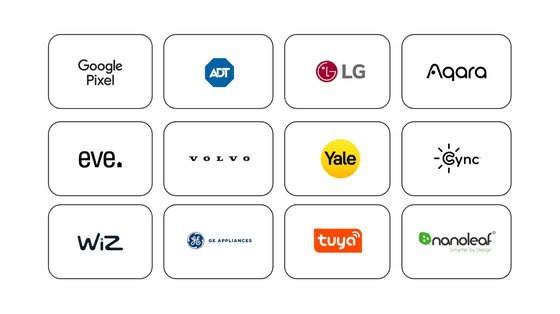Google announces new API 'Home API' that can control over 600 million smart devices compatible with Matter and Google Home, available for both Android and iOS & evolves to be easier to use by making smart TVs into hubs

Google has announced the Home API to open up
Home APIs: Enabling all developers to build for the home - Google Developers Blog
https://developers.googleblog.com/en/home-apis-enabling-all-developers-to-build-for-the-home/

Google launches new Home APIs and turns Google TVs into smart home hubs - The Verge
https://www.theverge.com/2024/5/15/24157154/google-home-api-matter-smart-home-chromecast-google-tv
Google Home APIs let other apps use your smart home
https://9to5google.com/2024/05/15/google-home-apis-apps-smart-home/
Google lists the following '5 things you need to know' about the Home API:
1: Any developer can now build experiences that work with Google Home
The home offers developers a unique opportunity to build deeper, seamless connections with their users, but developing for the smart home is unnecessarily difficult: developing for the smart home means integrating with many device manufacturers, working with hubs and Matter fabrics , and operating automation engines driven by intelligent signals.
Whether you're building apps specifically for smart home devices or apps that aren't related to smart home, like fitness apps or streaming apps, you can use the Home API to deliver fun and differentiated experiences, and this will be available on both Android and iOS.
2. Apps can now access over 600 million devices
With the new Device and Structure APIs , you can access over 600 million devices with a single integration. You'll be able to control and manage devices connected to Google Home, such as Matter-enabled light bulbs and Nest Thermostats , at home and on the go. Not only will it be possible to build complex apps that can manage every aspect of your smart home, but smart device and app integrations will also enable you to do things like turn on the front door lights before the food delivery driver arrives.
The Home API is designed with privacy and security in mind, leveraging industry-standard best practices. Users must explicitly grant access before an app can access their smart home devices. They can also easily revoke access at any time from the Google Home app. To ensure a high-quality experience, developers adopting the Home API must pass our own certification before launching their apps.
The Device API and Structure API will cover all the fundamental building blocks for creating smart home experiences.

Additionally, there's a new Commissioning API that will allow developers to set up Matter devices directly within their own app, the Google Home app, or using Android Fast Pair, without having to create a Matter fabric.

3. Leverage Google's unique home intelligence to power automation
As users add more devices to their smart homes, it becomes more difficult to get all the devices to work together. Google has been working on various initiatives, such as
The Automation API allows apps to create and manage home automations using Google Home's new automation engine and intelligent signals. Automations can be triggered by device signals from the home, such as occupancy events from motion sensors, mode changes from home appliances, and media events from smart TVs. This means that you can easily create automations such as 'Turn on the lights when the front door is unlocked at night.'

4. Extend Google Home hub to your TV
Google Home hubs are devices that allow remote access and local control of Matter devices over Wi-Fi and Thread . The Home API leverages the network of Google Home hubs to allow users to control their Matter devices whether they're at home or away.
Therefore, Google plans to upgrade the Google Home hub and introduce Home Runtime in the second half of 2024. This will enable devices including Chromecast with Google TV, Google TV-equipped devices running Android 14 or later, and LG smart TVs to be used as Google Home hubs.
The Home API allows you to quickly control lights and switches locally through the Google Home hub. In early testing, Google has confirmed that device control is up to three times faster than before, so app developers will be able to use the Home API to build faster, more responsive local controls.
5. Diverse apps provide fun and new experiences
Google is working with various manufacturers to build smart home experiences, so in addition to Google's own devices, we'll see several devices released that are compatible with the Home API from big companies like LG and Volvo.

The Home API is already available to Google's early access partners, and Google has also opened a waiting list for developers. Anish Katukaran, head of Google Home and Nest products, told The Verge that 'the first apps using the Home API will appear on Google Play and the App Store in fall 2024.'
However, in 2019, Google shut down Works With Nest, a third-party developer program for connecting home automation products, so some say that 'Google can't be trusted to continue to expose these kinds of APIs to third parties.'
Related Posts:







